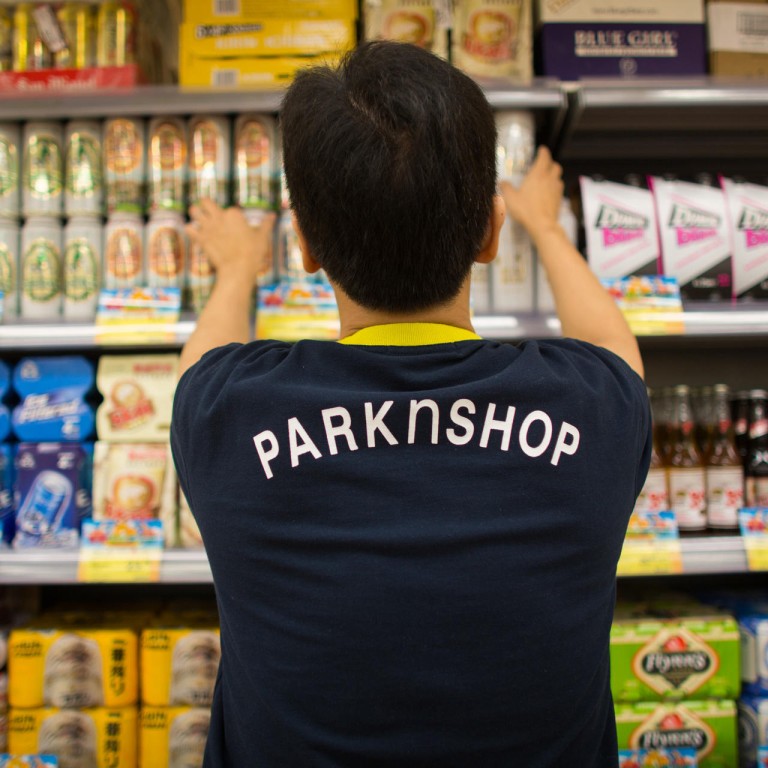
ParknShop merger will prove Hong Kong's competition law is a joke
Regulations forbid industry players from conspiring to fix prices but there is nothing to prevent mergers that give market dominance
Anywhere else in the world, regulatory alarm bells would be clanging at ear-splitting volume.
Not in Hong Kong.
Earlier this week, mainland grocery giant China Resources Enterprise confirmed it is bidding to acquire the ParknShop supermarket chain from Li Ka-shing's Hutchison Whampoa.
ParknShop is a familiar sight in Hong Kong, with 286 stores in the city under brands ranging from Taste and Gourmet, to Great and Su-Pa-De-Pa.
Depending whose figures you take, it is either the biggest or second-biggest supermarket chain in the territory, with a market share of somewhere between 30 and 40 per cent, about the same as its co-duopolist, Jardines-owned Wellcome.
In third place is relative newcomer Vanguard, with a market share of about 8 per cent.
However, Vanguard is owned by China Resources Enterprise, which means if its bid for ParknShop were to succeed, China Resources would immediately become the dominant participant in Hong Kong's supermarket sector, with a market share approaching 50 per cent.
In other developed markets, a deal like this would quickly attract the attention of the local competition regulators, who would subject the proposed merger to severe scrutiny, asking whether the formation of such a massive player was really in the customer's interest.
In all likelihood, they would impose strict conditions on the acquisition, requiring the merged company to divest a number of its stores to ensure competition wasn't damaged.
But if you are expecting the same sort of regulatory scrutiny in Hong Kong under the new competition law passed in June last year, then you are going to be sadly disillusioned.
If Li gives the China Resources bid his nod, our newly appointed competition commissioners will let the deal sail through without even batting so much as an eyelid.
For one thing, the provisions of the Competition Ordinance haven't yet come into force.
Although the law was passed more than a year ago, progress towards implementation remains glacial. The government only got around to appointing 14 worthies as competition commissioners in May. As yet, the new regulator has no staff, no offices and no website.
At this rate, the commissioners are unlikely to choose a chief executive before next year. Only then will the new regulator begin recruiting staff and drawing up guidelines. As a result, lawyers don't expect enforcement operations to begin before the middle of 2015 at the earliest, fully three years after the law was passed.
But even if everything were in place and ready to go today, Hong Kong's new competition regulator still wouldn't cast its eye over the China Resources bid for ParknShop.
Even if it were Jardines acquiring ParknShop to set up a super-grocer controlling 75 per cent of the market, they wouldn't lift a finger.
That's because under Hong Kong's new law, rules prohibiting the abuse of market dominance do not apply to mergers and acquisitions.
The only exception is in the telecommunications sector, where anti-competitive deals between players were already forbidden anyway.
This exclusion of mergers and acquisitions makes a joke of Hong Kong's whole competition law. It forbids different players in the same business from conspiring to fix their prices. But it does nothing at all to prevent them merging so that they can rip off their customers untroubled by any competitors.
With a little political leadership, the law could easily be amended to cover mergers in all sectors.
But at the rate Hong Kong's government is moving, any revision will come years too late to do anything about a China Resources takeover of ParknShop.

